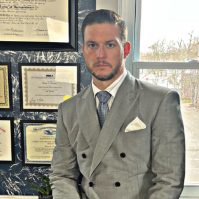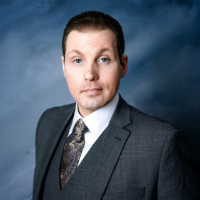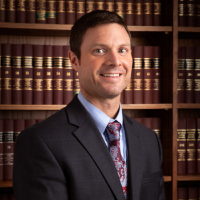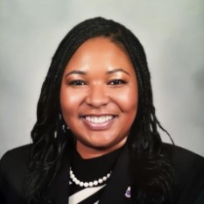 Tekonsha Felony Lawyers, Michigan
Tekonsha Felony Lawyers, Michigan
Sponsored Law Firm
-
 x
x

Click For More Info:
-
Marrs & Terry, PLLC
6553 Jackson Road Ann Arbor, MI 48103» view mapBankruptcy & Debt, Criminal Defense, Estate Personalized, Efficient Counsel
Marrs & Terry, PLLC have been helping individuals face a variety of legal challenges, including bankruptcy, estate planning and administration, and family law.
800-862-7221
Not enough matches for Tekonsha Felony lawyer.
Below are all Tekonsha Criminal lawyers.
Sponsored Lawyers
1-10 of 17 matches
Criminal, Constitutional Law, State Trial Practice, Civil Rights
As a Hillsdale County native, Daren Wiseley is thrilled with the opportunity to serve his home community. He focuses his practice on criminal defense and constitutional/ civil rights litigation, where he is committed to defending individual rights, in a time when they are under assault more than ever. Mr. Wiseley is known for his passion and work ethic and brings a hard-hitting style to the courtroom. Mr. Wiseley takes prides in going the extra mile for clients and aggressively defending them. He is known for his skillful courtroom strategy and creative motion practice. Additionally, Mr. Wiseley brings knowledge and expertise of the media to the table to better serve his clients. Few lawyers understand the importance of media relations and its inner workings.Mr. Wiseley loves being a warrior for the underdog. He thrives in high-stakes cases and refuses to budge under pressure. A recent example of this occurred in a case regarding a rarely used felony eavesdropping statute that had no case precedent. Even though the media, and even most lawyers counted him out, he used his tireless work effort and thoughtful creativity to win the case after oral argument on his motion to dismiss. Mr. Wiseley has significant experience defending Constitutionally protected rights, and understands the role of protecting citizens against government overreach. One notable example occurring when a client was charged with a felony for a harmless Facebook post - Mr. Wiseley was able to get this charge dismissed as well. Both cases also provided examples of Mr. Wiseley's ability to influence the court of public opinion, to protect his clients' from reputational harm in the community.Mr. Wiseley is highly sought after throughout Michigan, practicing in counties throughout the state and both federal districts. When he is not in the office defending liberty, Mr. Wiseley loves golfing with his grandfather, reading, working out, and playing with his cat, Ovi.
(more)Criminal, Felony, Landlord-Tenant, Child Custody
Ready to work with you to resolve your legal needs. Vandervoort, Christ & Fisher, P.C., is a general practice law firm that is dedicated to serving the legal needs of individuals and corporate clients. Based in Battle Creek, Michigan, we provide experienced representation in a wide range of practice areas. Clients appreciate our ability to offer the experience of a large firm, while still offering the personal service and responsiveness expected of a small firm.
(more)DUI-DWI, Criminal, Bankruptcy, Divorce & Family Law
Wesley Todd originally joined the firm as an intern in 2008. He has been a shareholder of the firm since 2020. He was born in Kalamazoo, Michigan and graduated from Albion College in 2006 with a major in political science. While at Albion, he was an active member of Delta Sigma Phi fraternity, Alpha Phi Omega, national service fraternity, Habitat for Humanity and the Varsity Tennis Team. Wesley was awarded a Merit Scholarship to attend Michigan State University College of Law and earned his Juris Doctorate cum laude in 2010. After earning his Juris Doctorate, he established his private solo law practice in his hometown of Kalamazoo from 2011 to 2014. After this period Wesley joined Vandervoort Christ and Fisher, practicing there for over six years. Subsequently Wesley re-joined the firm in 2020. Wesley primarily specializes in Criminal and Family Law, as well as civil litigation. He has experience in a plethora of areas from divorce and custody hearings to criminal matters and Bankruptcy. He has presented cases in all counties of West Michigan. He is admitted to practice in the State of Michigan and in the Federal District Court for the Western District of Michigan. Wesley participates in activities with All Species Kinship and is a vintage car and sports enthusiast. Wesley is a member of the Kalamazoo County Bar Association and Calhoun County Bar Association (President 2019-2020). Wesley’s passion for law stems from an intrinsic motivation to provide justice for all people.
(more)Criminal, Estate, Divorce & Family Law, Guardianships & Conservatorships
Ashley A. Smith joined Vandervoort, Christ & Fisher, P.C. as an associate attorney, in April 2023. Ashley was born and raised in Battle Creek, Michigan and attended the Battle Creek public schools. Ashley received a Bachelor of Arts in Political Science, with a minor in Peace and Social Justice, from Valparaiso University in 2009, and a Juris Doctorate from Valparaiso University Law school in 2016. While in law school Ashley was a member of the Sports Law Clinic, aiding in resolving amateur athletes’ grievances with the United States Olympic Committee and with the United States Anti-Doping Agency. Ashley is an adjunct professor at Kellogg Community College, where she teaches Business Law online. Ashley is client-focused, and her previous legal experience and time as a solo practitioner prior to joining Vandervoort, Christ & Fisher has given her the insight, knowledge, and skills to aid clients in a variety of legal issues and matters.
(more)




 Tricia Terry Ann Arbor, MI
Tricia Terry Ann Arbor, MI AboutExperienced Michigan Lawyer
AboutExperienced Michigan Lawyer Articles
Articles




